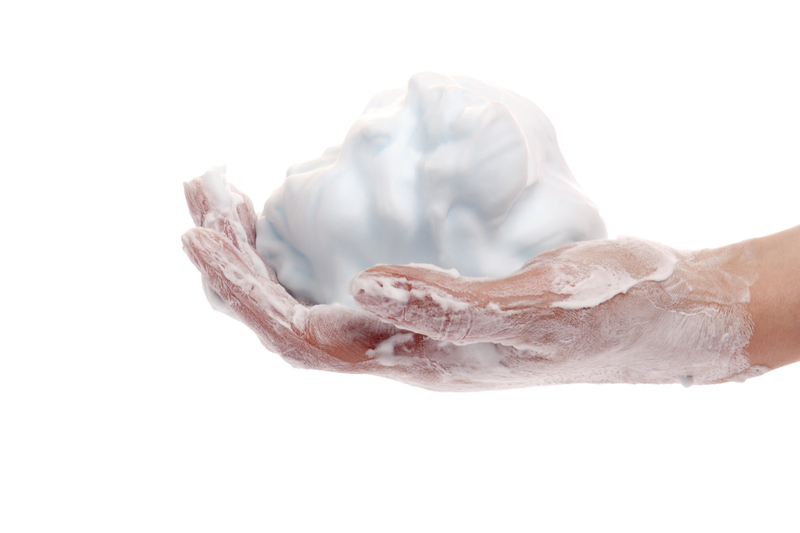Eco-Friendly Methods for Recycling Kitchen Pots and Pans
Posted on 09/09/2025
Eco-Friendly Methods for Recycling Kitchen Pots and Pans
In today's world, where the focus on sustainable living is ever-increasing, it is essential to responsibly dispose of household items--including kitchen pots and pans. Many people are unsure about the best way to recycle their old cookware, often relegating them to landfills. However, with a little knowledge and creativity, you can embrace eco-friendly methods for recycling kitchen pots and pans that benefit both the environment and your community. This comprehensive guide explores sustainable options for reusing, repurposing, and properly recycling your old cookware.

Why Recycling Kitchen Pots and Pans is Important
Each year, millions of tons of cookware are discarded, leading to increased landfill waste and environmental hazards. Most pots and pans are made of recyclable metals--such as aluminum, stainless steel, and copper--making them valuable resources if managed responsibly. By opting for eco-conscious recycling methods, you can help:
- Reduce landfill congestion
- Conserve natural resources
- Minimize greenhouse gas emissions
- Preserve your local environment
Let's explore the various eco-friendly ways to recycle, reuse, and repurpose kitchen pots and pans, transforming what would be waste into valuable contributions for our environment.
Understanding What Can Be Recycled
The Materials in Cookware
To engage in responsible cookware recycling, it's essential to know what your pots and pans are made of. Common recyclable materials include:
- Aluminum: Lightweight and highly recyclable.
- Stainless Steel: Durable and recyclable, even with some wear.
- Copper: Prized for its value when recycled.
- Cast Iron: Extremely strong, can be repurposed or melted down.
However, not all parts are always recyclable. Handles made from certain plastics, Bakelite, or wood may need to be separated before recycling. Non-stick coatings such as Teflon can also complicate the recycling process.
Check Local Recycling Guidelines
Each city or municipality has specific rules regarding the recycling of cookware. You should contact your local recycling center or check their online resources for:
- Accepted materials and items
- Preparation requirements (e.g., removal of plastic or rubber handles)
- Drop-off locations for scrap metal
When in doubt, always ask about the best practices for recycling old pots and pans.
Eco-Conscious Recycling Options
Drop-Off at Scrap Metal Yards
One of the most environmentally sound options for the recycling of kitchen pots and pans is to take them to a local scrap metal facility. These facilities accept a wide variety of metals and ensure responsible handling. Here's how it works:
- Contact and locate your nearest scrap metal yard
- Prepare items by removing non-metal parts if required
- Transport your cookware to the site
- Some facilities may even pay for higher-value metals like copper or aluminum
Pro Tip: Gather other metal items from your household--like old tools, metal hangers, and wires--to drop off at the same time for maximum impact.
Community Recycling Events and Collection Drives
Many neighborhoods host recycling collection events, often accepting items not typically handled by curbside programs. These drives may have specific drop-off days for scrap metal, including old cookware. Check local community boards or municipal websites to participate in these eco-friendly initiatives.
Manufacturer Take-Back Programs
In recent years, several cookware brands and manufacturers have launched take-back schemes, encouraging consumers to return old pots and pans for proper recycling. Some will even offer discounts on new purchases as a reward for recycling. Popular programs include those by companies such as Calphalon, GreenPan, and Tefal (T-Fal).
Specialty Recycling Programs
Some non-profit organizations and eco-conscious groups accept used cookware in any condition, especially for upcycling projects or for distribution to families in need. They collaborate with local recycling companies to strip and recycle cookware parts responsibly. Research charities or programs in your area that may accept old pots and pans for eco-friendly recycling.
Creative Ways to Repurpose Old Pots and Pans
Still functional, yet unattractive, pots and pans can often find second lives with a bit of creativity. Upcycling pots and pans is an increasingly popular trend that keeps waste out of landfills while providing unique and useful household items. Here are some innovative ideas:
Planters and Garden Decor
- Use deep pots as decorative planters for herbs, flowers, or succulents
- Turn shallow pans or skillets into wall-mounted garden displays
- Paint and decorate your cookware for vibrant outdoor appeal
Storage Solutions
- Cleaned pots make excellent containers for office supplies, craft materials, or kitchen utensils
- Lids can serve as unique serving trays or wall art
DIY Craft Projects
- Create clocks from frying pans with some clockwork and numbers
- Repurpose handles into door or drawer pulls
- Stacked pans can become rustic lamps or candle holders
*Unleashing your creativity allows you to give new life to old kitchen items while embracing sustainable design.*
Donating and Giving Away Usable Pots and Pans
If your old pots and pans are still in working condition but you simply have no more use for them, donating is one of the kindest--and greenest--solutions. Quality cookware is always in demand and can benefit families, individuals, and organizations in need.
Where to Donate Old Cookware
- Local shelters and food banks
- Charity thrift shops (e.g., Goodwill, Salvation Army)
- Community kitchens or soup kitchens
- Non-profit organizations supporting refugees or low-income families
Tip: Clean your pots and pans thoroughly before donating for hygiene and presentation purposes.
Online Giveaway Platforms
- Freecycle
- Facebook Marketplace (free items section)
- Craigslist (Free section)
- Nextdoor community app
With a simple online listing, you can easily pass on usable cookware directly to someone who has a need for it, thereby ensuring both sustainability and resourcefulness.
Tips for Prolonging the Life of Pots and Pans
One of the best ways to minimize waste is to extend the life of your pots and pans before recycling becomes necessary. Here are several eco-minded practices that help get the most from your cookware:
- Always follow manufacturer's care instructions
- Use soft sponges and avoid abrasive scrubbers to prevent surface damage
- Season cast iron pans regularly to maintain their non-stick qualities
- Repair or replace broken handles and lids when possible
- Remove burnt food with baking soda and vinegar instead of harsh chemicals
By following these maintenance tips, you'll enjoy longer-lasting performance from your cookware while reducing your household's environmental impact.
What to Avoid: Non-Eco-Friendly Disposal Methods
While it may be tempting to simply toss old or damaged cookware in the trash, this is the least sustainable option. Landfills are overburdened, and valuable recyclable metals go to waste when thrown away. Additionally, non-stick coatings can leach chemicals into the soil, posing long-term environmental hazards.
- Do not place cookware in regular curbside recycling bins, as most facilities cannot process them with typical household recyclables
- Never incinerate cookware, which releases toxic fumes (especially non-stick pans)
By steering clear of these disposal methods, you are promoting a healthier environment and responsible recycling practices.
How Non-Stick Cookware is Treated Differently
Non-stick pans present unique recycling challenges due to their chemical coatings, such as PTFE (Teflon). While the metal base is recyclable, the coating often must be removed, which not all recycling centers are equipped to handle.
- First, contact your local scrap metal yard and ask if they accept non-stick pans
- If they do not, check with specialty recyclers who specifically deal with Teflon-coated items
- Some manufacturers provide dedicated take-back programs for non-stick cookware
Always separate handles and lids as they often contain materials that need special treatment.

Frequently Asked Questions About Eco-Friendly Pot and Pan Recycling
Can I recycle pots and pans in my curbside recycling bin?
Most curbside recycling programs do not accept oversized metal items or cookware due to processing limitations. It's best to use scrap metal recycling centers or special collection events.
Are non-stick pans recyclable?
The metal base is recyclable, but coatings can complicate things. Contact your local recycler or manufacturer for advice.
What if my cookware is damaged or broken?
Even damaged or unusable cookware can be recycled as metal. Detach any non-metal parts first, if possible.
What happens to recycled pots and pans?
Recycled metals are melted down and used in the manufacture of new products, reducing the need for virgin materials and lowering the environmental footprint.
Summary: Embracing Sustainability With Responsible Cookware Recycling
Recycling old pots and pans does not need to be complicated or wasteful. By utilizing eco-friendly recycling methods for kitchen cookware, you can do your part to reduce landfill waste, save resources, support your community, and inspire creativity in your own home.
- Utilize scrap metal yards for proper recycling
- Donate or repurpose usable items creatively
- Participate in community recycling and manufacturer take-back programs
- Avoid trash disposal and follow safe, responsible practices
By making small changes in the way you handle old cookware, you are contributing to a cleaner, greener planet for future generations. Join the movement, and turn your old pots and pans into a force for good!






